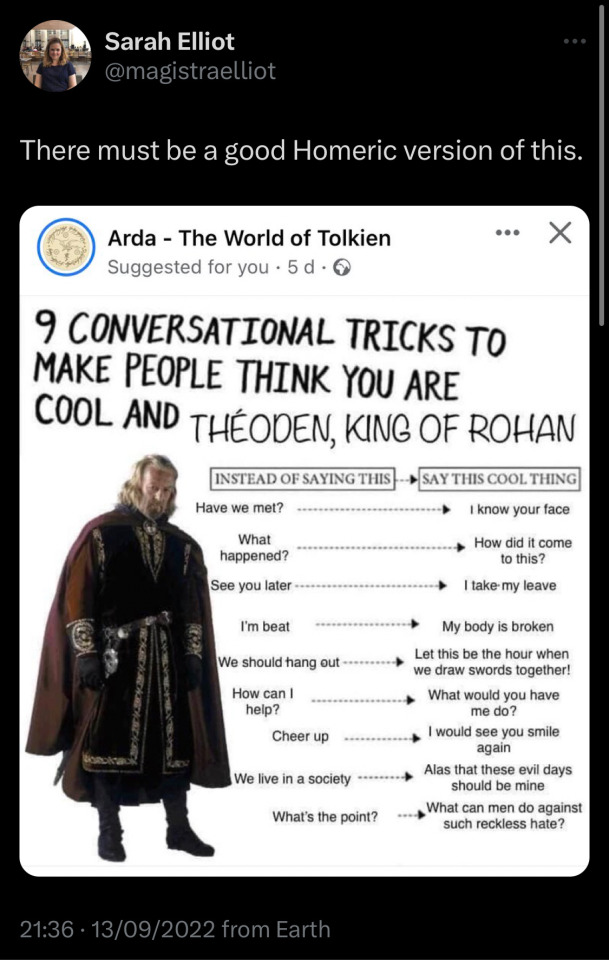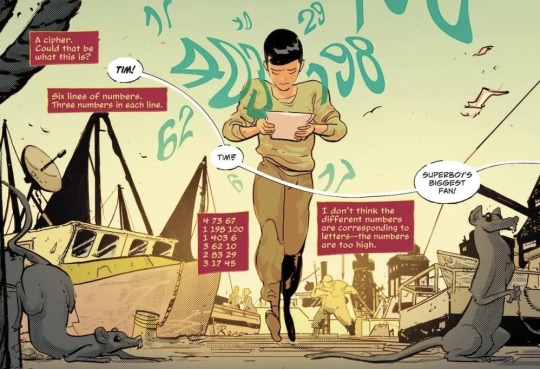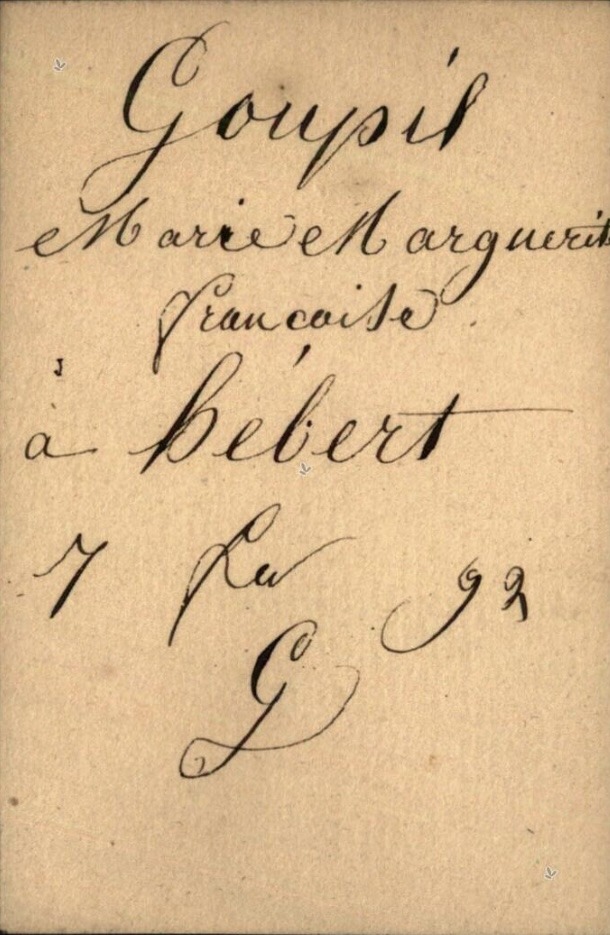#myth conversations
Text
Observation: Chaos Vortex cutscene
I always love this scene, but I also love how much effort is put into littler details. I also recommend watching the cutscene then just looking at the photos I've taken, as the video format conveys so much more.

^ While this is on the lower pad, it might make you miss all the details on the upper pad.

^ Dark Pit is bruised up himself and looks very genuinely concerned about Pit's health, that his sprite doesn't convey.

^ He gets up as Viridi explains the situation, watching Pit once he gets one knee up. While he is listening to Viridi he is focused on Pit.

^ By the time he gets told he can't fly he begins to look downwards, most likely a mix of remorse but also his own injuries.

^But he quickly looks up again when he sees Palutena approach, before she is even on screen. Suddenly being alerted of her presence.

^ By the time she is on screen Dark Pit looks away more deliberately. His eyes are still open, looking at the ground in from of him. He doesn't watch Palutena pick up Pit. If I wasn't sure he felt guilty before I definitely see it now, but mostly by the act of letting Palutena have space with Pit. He looks like he is contemplating as Palutena pulls Pit over. I think he has already decided at this point he is going to help Pit. Which is so cool but easy to miss detail.
KI:U really knows how to use it's models and it is really shown here. There are of course many other scene with this much detail. And while small I really appreciate what it shows for the character.
211 notes
·
View notes
Text
Was just reminded of my stupid Odysseus parody of the Theoden of Rohan meme:



#the odyssey#Odysseus#tagamemnon#greek mythology#meme#greek mythology memes#greek myth#odyssey meme#theoden king of Rohan#9 conversational tricks meme#odyssey
1K notes
·
View notes
Text
Not so gentle reminder
Myths and Facts
- fictives, introjects, comfort characters, NPCs are signs of faking - these are all normal, recognized things in DID. These alters can come on suddenly or gradually. See the next point.
- alters only form during times of high stress or (re-)traumatization, they don't appear out of nowhere - while there is some truth to this, it's not that simple and is certainly not a form of faking. Alters can take years to show up after an event, and they might not know why they formed. It can be very hard to pinpoint an alter's reason/time frame for creation, leading many to misinterpret an alters origin. It's also common for some systems to split fragments very easily, and for reasons that can be boiled down to minor inconveniences. These fragments can and do take identity from media.
- people use systemhood to avoid accountability - while there are people who do this, please be cognizant that the point of DID is dissociation-- the disownment of one's actions, emotions, and memories. There is a good chance that the person you're accusing of faking is actually in an extremely bad situation mentally and is doing the exact thing people with DID do. System accountability is a learned behaviour that comes with healing and system communication. For some, it comes easy, for others, it's a sign of being in a bad mental state and trained reactions to confrontation. Please note: it's not your job to help them. Say your piece and move on, you're not going to fix anything there.
- only the worst of the worst forms of abuse can cause DID - repeated and longterm emotional neglect is the leading cause of DID, and is theorized to be more damaging than physical and sexual abuse combined.

Relevant articles because I'm lazy
Remember to be kind to others. We're all struggling in our own ways.
#syscourse#pro syscourse conversation#actuallydissociative#actuallydid#actuallyosdd#myths and facts#dissociative identity disorder#actually traumagenic#actually traumatized
307 notes
·
View notes
Text
Artemis: I’m a top
Apollo: You’re a virgin
#this is how most of their conversations go#greek god sitcom#greek gods#greek myth memes#greek mythology#incorrect greek gods#incorrect greek mythology#god#apollo#phoebus apollo#artemis greek mythology#artemis goddess of the hunt#artemis goddess#apollo and artemis#artemis and apollo#apollo greek mythology#the twins greek mythology
125 notes
·
View notes
Text
i am not autistic but i do believe in their beliefs
#^ guy who has a raadsr score of 16 but thought eye contact was a myth well into high school#something they dont tell you about autism is that if you happen to be raised by and around mostly autistic people#some wires will get crossed regardless of what is actually going on in your brain.#my family and friends r like 90% autistic people there was no getting away clean. i was raised thinking this was just how everyone is#like yeah your family dinner conversations dont consist of 4 people infodumping about completely seperate topics at each other for an hour?#this isnt me being in denial btw i know for certain i am not autistic. i just think its funny that i have like. secondhand autism#and also because i am not beating the autism allegations in the comments of that last post. its not me guys its my father i swear#he did this to me#personal
209 notes
·
View notes
Text
B'Elanna, Neelix, Tuvok and Chakotay needed to star in an episode where they just talked about their different beliefs and approaches to spirituality/religion. Paired off and all together. I need to gain more insight. I need characterization and I need it to be messy.
#B'Elanna's difficulty with Klingon myths and religion (especially due to her internalized racism)#Chakotay's current strong belief in his own spirituality despite his initial complete rejection of it (and how B'Elanna seems to admire#and have talked with Chakotay about it extensively in the past given how many specifics she's aware of)#Neelix's belief in an afterlife being the only thing that comforted him after his entire family was killed - the knowledge that he would be#able to reunite with them again and that knowledge being ripped away from him#Does he still believe? Are there other aspects of his previous spiritual beliefs that are thrown into question?#Just because it isn't 'real' does it make it unimportant? How do we even know whether or not it's 'real'?#He died and doesn't remember reaching that tree and seeing his family - does that mean it didn't happen?#Tuvok's line in 'Innocence' about how he's begun to have doubts about whether or not a katra exists and what happens after someone dies#and his firm ties to Vulcan spirituality and ritual#ALL SO INTERESTING!!!!!!!!#star trek voyager#I don't think it'd be a calm or healthy conversation either - they're not therapists and I don't think anyone but Chakotay#would be particularly careful with his words#and before you say Tuvok's a Vulcan so he would be let me remind you that Tuvok told B'Elanna to her face that he thought Klingons#were basically savages - he is INDELICATE to say the least#Neelix is careful with his words bc he's a people pleaser for survival but also he has a tendency to bother people and be overly pushy#and I think he'd do a lot of research and be the one leading the conversation/the reason they get on the topic and continue on it#B'Elanna wouldn't want to talk about it. She wants to talk about it the least. But she must!!!! Bc the episode demands it!!#st voy
60 notes
·
View notes
Text
According to Bernard, Robin is Bernard’s favorite vigilante but Tim is a Superboy fanboy. And not just any fan, but the biggest fan. I know this might be Tim trying not to associate too much with Robin so he can divert suspicions (and to be fair, Tim’s been shown with plenty of Superfam merch before), but also…Timberkon real to me.

Tim Drake: Robin #3

Tim Drake: Robin #4
#tim drake#bernard dowd#timbern#timberkon#timkon#my guess is that Bernard sparked a conversation about Superboy and Tim couldn’t help but explain facts/debunk myths so he looked like a nerd#tim drake: robin#tdr spoilers#tuesday spoilers#tim drake: robin 4#batfam#dc#alt described#heroesriseandfall
368 notes
·
View notes
Text

"Mr. Page received your letter directed unto my lady Anne, and delivered the same. There is yet no answer. She gave kind words, but will not promise to speak to the King for you." Cromwell to the Cardinal.
#anne boleyn#anneboleynedit#still on my quest of posting all non-chapuys primary source quotes on anne...#also either a suggestion of conversion or detracting from arguments vis a vis cromwell's 'lutheranism'...in this same letter he says#he wished luther had never been born. so.#just love how suggestive this quote is lol#she could speak for you. but she won't <3#at the same time this is a feature you see come up again and again in. again#non chapuys primary sources . of people that actually spoke with or communicated directly with anne#thomas wynter says the same (she spoke very kindly to him was his quote iirc)#which runs rather counter to the narrative that she was needlessly hostile~ to everyone. and suggests even when she gave you a refusal.#it was gentle but firm .#henry viii#also the prevailing myth that all including cromwell of wolsey's 'affinity' despised her bcus they blamed her for his downfall...#they either weren't all that close to him or they didn't really blame her. richard page is the messenger here#and he seems to have enjoyed a very warm relationship with anne#page also had ties to henry fitzroy and anne stanhope. things that make you go hmmm
23 notes
·
View notes
Note
hebert had a wife and daughter?
Indeed he had!
Hébert’s wife’s name was Marie Marguerite Françoise Goupil. I haven’t found better information regarding her birth more than that it happened in Paris in ”the first days of 1756” (she was in other words one year older than her future husband). I also haven’t found out which of her three names was her first name, though all texts I’ve checked settle on Françoise, so I’m also going to call her that.
Françoise, according to Paris révolutionnaire: vieilles maisons, Vieux papiers (1903) was the only child of Jacques Goupil and his second wife Marie-Louise Morel. The former had been the owner of a not very successful lingerie business which his wife then took over after his death. When Marie-Louise died as well, on July 16 1781, she had for a while lived with and worked as a nurse for the abbot Vaudair, who it is possible her daughter then turned to when she a while later started working for religion. Françoise became a nun of the Couvent des Filles de la Conception on rue Saint-Honoré, the same convent where Élisabeth Duplay claimed she and her three sisters took their first communion.
In June 1790, municipal commissioners presented themselves at the convent to hear its inhabitants’ declaration on whether they would stay there or leave. Out of the 24 nuns, only Françoise responded that ”she could not make up her mind at the moment,” the other 23 declaring that ”faithful to their wishes, they wanted to live and die in their state as nuns.” A year later, July 1 1791, Françoise’s name no longer featured among the convent’s inhabitants, meaning she had left it, be that out of free will or her sisters kicking her out for what she had said the previous year.
Hébert’s fellow journalist Louis Marie Prudhomme claimed in his l’Histoire générale et impartiale des erreurs, des fautes et des crimes commis pendant la Révolution (1797) that it was while at La Société Fraternelle des Patriotes de l'un et l'autre sexe Françoise for the first time met her future husband. Their wedding was held in the parish of Saint-Gervais on February 7 1792 (see the image below). After the marriage, the couple settled on Rue Saint-Antoine.

According to the same Prudhomme, Hébert was however not heads over heels in love with his wife:
[Hébert] married more to appear to have carried out an act of good citizenship than out of esteem and love for his wife. Nevertheless, they got along quite well, although she was ugly. It was a large spider that came out of the convent of the Assumption or the Annunciation. […] A wonderful revolutionary frenzy took hold of the couple, and they were faced with the people, who shouted bravo!
Hébert’s own letters would however appear to contradict this:
My situation, although difficult given the immensity of occupations with which I am responsible, becomes happier every day. I must inform you, my good friends, of the alliance that I am contracting with a very amiable young lady of excellent character. It would be enough of these advantages and were she devoid of all resources, the one I love would not be any less dear to me; but to fill my happiness I find enough fortune with my wife to be reassured about her fate if death separates us. I therefore ask you, my dear sister, to give me your approval and to ask the same from Boissierre. […] I am very assured that you will sympathize with my lovable pretender. She is very spiritual. Speaking in the old style I would say that she is comme il faut, but as I have been assured that you are as patriotic as me I only use constitutional expressions. This demoiselle is called Goupil: she has spent her entire life in the convent up until now. By her personal qualities and by the advantages she enjoys she could claim to someone much richer than me; but my good fortune gave me preference over several competitors. You see, my good friend, that not everything in life is bad and that fate has finally tired of persecuting me and through consistency I have been able to create a pleasant and lucrative position for myself.
Hébert in an undated letter to his sister, written somewhere in 1791
I am healthy and very happy. United with a woman who combines all the good qualities with the charms of the mind, whose education is completed, whose character is perfect, I lead the sweetest and most peaceful life.
Hébert in an undated letter to his sister, written somewhere in 1792
Réné Desgenettes, who in his memoirs claimed to have met Hébert in late 1791 (though it was most likely early 1792) also hints at a loving relationship:
After my return to Paris, by the end of 1791, I had met at la Grave, or rather under the Saint-Jean arch, my fellow patriot and almost fellow student Hébert, who showed me with satisfaction his feelings over seeing me again, how much he had often regretted that I had been absent from the capital during the first days of the revolution.
”You would have surely played an important role,” he told me, ”but now that you’re here everything is almost over. I live pretty close to this place, rue Saint-Antoine, opposite the passage of this name, which leads to rue du Roi des Deux-Siciles. My little apartment is on the third floor at the front. I have not at all forgotten your constant kindness or what I owe you. I want to speak of money so generously lent, because I would not dare to recall and could not count how much you often gave me at the traitors of the rue de la Parcheminerie, de Mâcon and de la Grille du Carrousel. Without you and the honest patriots from rue des Noyers, I would have starved to death… I can’t say, monsieur, which hours I will be at home, where I still dine everyday, and where I would consider myself both happy and honored to find you. But you will be sure to always find my wife there, because I’m married. Madame Hébert is a former nun from Conception-Saint-Honoré, young and very spiritual. Despite her burning patriotism, she has kept a lot of piety, and considering I love her so much, I never contradict her on this point, contenting myself with a few jokes.” I never answered to this invitation, nor did I find the occasion to see Hébert again after the end of 1791.
From the summer of 1792, we have two letters Françoise wrote to her husband’s sister, which they too seem to indicate a happy marriage:
To mademoiselle Hébert the older in Alençon
Paris, 24 July 92
We were firmly convinced, my husband and I, that you received the newspaper as well as Mr. Desnos. M. Hébert had taken all the necessary means for this; but we had the misfortune of associating ourselves with the biggest rascal in Paris, who deceives us in every way. It is therefore not surprising that you were deprived of the papers he was responsible for sending you. We are ready to leave him and you will receive what you want without fail, I hope. We would already be on top of our affairs without this man, hardly worthy of a partner as upright as my husband, who has been fooled ever since he started working; but whose well-known probity and frankness made an infinitely honest young man desire his association. So we will work through new charges and I hope that this time we will not be unsuccessful. If M. Hébert is good enough to make his happiness consist in having me, it is indeed me, mademoiselle, who without grace can certify that I am perfectly happy with he who never ceases to everyday give me new proofs of his tenderness. I have carried a precious token of him in my belly for three months now, he wants the child to look like me, and I want it to look like its father, this, mademoiselle, is the continual subject of our differences. We agree more willingly on the desire to have you as a witness of our love, it will not be up to us unless it happens soon. You are very worried about the dangers of the fatherland. They are imminent, we cannot hide them: we are betrayed by the court, by the leaders of the armies, by a large part of the members of the assembly; many people despair; but I am far from doing so, the people are the only ones who made the revolution. It alone will support her because it alone is worthy of it. There are still incorruptible members in the assembly, who will not fear to tell it that its salvation is in their hands, then the people, so great, will still be so in their just revenge, the longer they delay in striking the more it learns to know its enemies and their number, the more, according to me, its blows will only strike with certainty and only fall on the guilty, do not be worried about the fate of my worthy husband. He and I would be sorry if the people were enslaved to survive the liberty of their fatherland, I would be inconsolable if the child I am carrying only saw the light of day with the eyes of a slave, then I would prefer to see it perish with me. I gave Mde Pelletier the papers for you that I haven't through up much since M. Desnos left.
I have the most ardent desire to see you.
Mademoiselle and dear sister
Your very humble servant
Goupil… Hébert
My husband tenderly embraces you as well as your sister, whom I beg you to accept the assurance of my very sincere feelings.
To Mademoiselle Hébert the older.
Rue de la Mairie, Alençon, département de l'Orne.
Mademoiselle and dear sister-in-law,
I don't know what to attribute your long silence since last time I had the pleasure of writing to you; but it surprises and distresses me, I would have already complained if my since five months back very bad health would have left me that possibility. My husband, who was chosen by his section to serve as city commissioner on the night between August 9 and 10, has run the greatest of risks. He had the pleasure of rendering services to his fatherland, and always with that noble disinterestedness that you know from him. He has done and still does good without respite, he has seen and still sees intrigue rise up, and modestly remains Père Duchesne, a poor newspaper seller. He stood for election and was undoubtedly well worthy of becoming a member of the Convention; but he believed he had to hide nothing of the truth, more than once he made the intriguer who enjoyed a great reputation turn pale, he seemed too pure and too formidable to those who had influence in the nominations, and to the great astonishment of the brave sans-culottes, he himself is still a brave sans-culotte, which is enough for my happiness. Satisfied to know my husband was worthy and capable of doing anything to be satisfied, his hands remained pure like his soul and were not soaked in the blood that flowed in the prisons. For my part, I suffered from such a great horror that I almost lost my life; I believe that the law alone can strike down the guilty, and until then I will cover them with my body. All that can console me in this tragic event is that the names of those who are its authors are already in execration and that history by transmitting them to posterity will justify the people of Paris who has lost nothing (it must be said) of its urbanity. You would oblige me infinitely if you could tell me if the former Viscount the huntsman Lord of Carrouge has emigrated. I suspect that he has and if I was certain of it I would put an opposition against his property as he owes le 600 livres. My husband, who loves you very tenderly, says a thousand tender things to you and to your sister, and I ask you to believe me, both of you, with a very sincere attachment.
Mademoiselle and dear sister-in-law .
Your very humble, .
Servant G... HÉBERT.
My address from now on will be:
Cour des Miracles rue de Bourbon Ville Neuve.
A few months later, Réné Desgenettes claimed to have run into Hébert and been invited to dinner yet again, and this time he did follow through with it, resulting in this very long anecdote:
On February 24 1793, I spotted him, on rue Saint-Honoré, part of the procession bringing the remains of Pelletier de St-Fargeau to the Panthéon. […] Hébert, who had noticed me as well, dispatched himself from the group, approached me, shook my hand roughly and said: ”Where in the devil’s name do you live?”
”Rue du Paradis au Marais, n. 3.”
”I have important things to tell you and still live on rue St-Antoine.”
I still refrained from visiting Hébert. However, after a very few days, I learned that a gentleman of fairly good appearance, well dressed and calling himself substitute deputy of the Commune, had come to ask for me, and that he seemed upset for not having met me. Thinking there was no way to back down, the next day, around five o’clock, I went home to Hébert, where I found his wife, the former sister Goupille [sic], who, while waiting for her husband, occupied herself with preparing a rather delicate dinner, because the orator loved good food. Madame Hébert received me very well and told me her husband so many times had spoken of me with affection, that we were two old acquaintances. I approached to contemplate an engraving based on the beautiful painting by Titian or Paul Veronese, showing Jesus Christ with two of his disciples at Emmaüs’, when I noticed that Hébert below it had written: the sans-culotte Jesus dining with two of his disciples in the castle of a ci-devant…
”Here you see,” Madame Hébert told me, ”one of these bad jokes my husband often allows himself to make against religion, as a result of a detestable habit I have no hopes of curling him from... I am, monsieur, very much attached to Christianity… It’s our religion at its most beautiful, because I don’t subscribe to everything… I preach to the Jacobins, in the society of our sisters, the same doctrine that abbot Fauchet preach to our brothers at their reunions. He is a great and true apostle who inspired me with a perception of the enthusiasm which animates him, and I have reason to believe that he is also not dissatisfied with the zeal with which I seek to imitate him. I know all the advantages that the Bishop of Calvados has for me; he owes them to nature and to his superior talents, because he is a very handsome man, and everyone agrees that he is also very eloquent.”
Hébert arrived at six o’clock. Before sitting down at the table, where we then stayed for three hours, he took from a secretary a certain number of gold francs, which he handed over to me like an old debt with a thousand thanks. […]
Let us [said Hébert] speak a bit about Alençon and the first time of our youth. Madame Hébert will see that I have hidden nothing from her about the time of my life when it has been claimed that I was a scoundrel. You surely remember, monsieur, that upon leaving college, where I quite simply had the well-deserved reputation of being lazy and mischievous, I had the misfortune, or perhaps the good fortune, to fall out with la justice?
R.D.G: I remember it well.
Madame Hébert: But that is always very grave.
Hébert: This was also very grave, because the bailiwick of Alençon condemned me to banishment; but I appealed to the parliament of Rouen, which did not confirm the sentence of the first judges.
Madame Hébert: I’ve only ever known of this in a rough and very imperfect way.
Hébert: Well, you will know, my good friend, that in the town where monsieur and I were born, women have always had a great reputation for gallantry. Now the widow of an apothecary, who had been accused of bigamy, had in turn many lovers. In the front line there was a doctor who was very handsome, and after him, living under the same roof as the lady, was her premier garçon, as they expressed it then, and then finally the man who managed the very busy pharmacy. A rivalry which existed secretly between the doctor and the pharmasist broke out one day with so much fury that the doctor murdered his rival...
Madame Hébert: The horror! How did he kill him?
Hébert: The doctor took an iron or copper pestle, and delivered several strong blows to the head and across the face of my poor friend L..., who was on the point of being trepanned. However, even before public rumor got around, the king's prosecutor was seized as suspect in this criminal matter, it was dormant or rather stifled by a transaction which was attributed throughout the city to the conciliatory spirit of M. Desgenettes, your respectable father. Doctor Cl.... however, had aggravated his crime, because he was closely pursued, it is true, sword in hand, by the brother of L..., employed on the farms, he had tried twice to kill him. Outraged with rage upon learning that just revenge was going to elude the L... brothers and their friends, I drew up a note which was posted at the doors of the main church, the commissary, the courts and other places.
Madame Hébert: What did it say on the note?
Hébert: It said: ”Sentence rendered to the Supreme Court of Honor which condemns Doctor Cl... to the pillory of infamy, for compensation, etc. Then I drew two bloody knives in a saltire, with this motto: Olim veneno, nunc cultro.”
Madame Hébert: Which means?
Hébert: Formerly with the poison, now with the knife.
Madame Hébert: Is that right, M. Desgenettes?
R.D.G: Yes, madame, and if you want a different version: ”He has replaced the knife with the poison.” Nevertheless I must have the honor of observing to you, as your husbands already knows, that the doctor did not use the knife.
Hébert: The knife made Cl... more odious, and that's what I intended. The assassination is therefore tolerated by a court which had just hanged two unfortunate people, for having burglarily stolen forty sous from a church trunk, which I would happily call provocative, since it jutted out onto a main road. The veil of oblivion is extended over a crime that was to be punished by the torture of the wheel, and here I am, for a placard which repaired the wrongs of justice, extraordinarily prosecuted, and decreed for personal adjournment . This is not yet enough, and both God and the devil are invoked against me.
Madame Hébert: You are aware, my friend, that all justice emanates from God; but the possible intervention of the devil in a judgment rendered by men is a superstition that I reject, although you have sometimes regarded me as superstitious. Monsieur, she said, addressing the author of these Memoirs, I am not superstitious, but no one is more penetrated than me by the power of God and the ineffable benefits of the religion of Jesus Christ... Is it not the Savior who said to men: You are the children of the free woman? I have never blushed over my [connection to] the first estate, and admit it in front of everyone. I still keep, and you have it before your eyes, the bed that I had at the Assomption; when it becomes that of a mother, it will change in neither shape nor color... My principles are still the same as those of Sister Goupile [sic]. But, tell me, Hébert, please, how was Satan brought into your business?
Hébert: Because it was brought before the official of Seez, and the general vicar and canon of the cathedral, who presides over this ecclesiastical tribunal, launched a monitory against me. This act fulminated in the sermon in the parish church of Notre-Dame d'Alençon, with an apparatus and ceremonies borrowed from the inquisition, which filled the common people with terror, and part of the population barricaded themselves in their homes, at the the onset of night, while the proud men of the city, and especially the armed butchers, searched everywhere for the werewolf. You know, monsieur, that they are a brutal and even ferocious type of man. The fanaticism of butchers has long been maintained in our city, by making them appear with their cleavers and their dogs in the procession of the little Corpus Christi, in memory of the assistance they had given, in 1500, to the Catholics against the Calvinists, then very numerous and very powerful in our country. Do you remember, monsieur, seeing this ceremony?
R.D.G: Yes, monsieur, and to have seen at the head of the butchers, with his sword raised and his arm bare, a Malêfre. This gentleman who, I believe, lived in Seez and had a stronghold at the gates of Alençon, was descended from the one who first commanded the butchers in this ceremony. The dogs had been removed, because they bit those of the assistants who stepped on their feet, and because they howled in a terrible manner when the culverines of the castle came to shoot to salute the Blessed Sacrament.
Hébert: If the butchers, who were pleased by my known cheerfulness, had suspected me of being the author of the placard, I would have been very uncomfortable, and if they had been convinced of it, I would perhaps have been treated like the werewolf that they wanted to skin like a calf... Barricaded at the house of my poor mother, who borrowed books for me from all directions, I acquired this profound knowledge of history that deigned to grant me. My misfortunes in Alençon, repaired a little in Rouen, led me to Paris, and you know, very roughly, what the rest of my life was like.
Madame Hébert: It was during your debut in Paris, my dear friend, that you were the most silent…
Hébert: However, I had no reason to keep silent about the fact that for a long time I had struggled with the devil by the tail, even up to the time when I obtained a small job as a tobacconist at the Théâtre des Variétés. Yes, I suffered from hunger, thirst and cold for a long time. You are not unaware of the services rendered to me by Monsieur; I also had many obligations to the Parisot hairdresser on rue des Noyers, as well as to his wife. This graceful couple reminded us of the wigmaker, the Love of the Lutrin, and his wigmaker... We still had charming neighbors, the two daughters of the butcher across the street from Saint-Jean-de-Beauvais... Then, close to that of the English, this woman who loved you so much...
Madame Hébert: Is it so, monsieur, that you also have a good friend (girlfriend) in the quarter?
R.D.G: No, madame, but I often chat with a rather laughable old woman, who ran a tobacco shop and housed two or three students. The house, which was no more than fifteen feet wide, as deep, and yet five stories high, had belonged to the father of J.-B. Rousseau, who was born there on April 6, 1671. The good woman in question, who daily and naively repeated that she had once been young and had always haunted minds, had written on her door: This is where Rousseau was born.
Arriving quickly at the first days of the revolution, Hébert began to talk about how he had determined to write in a genre which was neither in his taste nor in his habits, but which he considered as having a powerful effect on the popular masses. Everyone believed that Père Duchesne was an essentially crude man; one will believe that by reading his papers, and one will be wrong, because he was, on the contrary, very polite. The conversation, which changed subject at every moment, because Hébert had little consistency in ideas, focused on Louis XVI and his family, whom the substitute of the commune had seen very often since August 10 at the Temple. At first he spoke of the dethroned monarch as a vanquished man who did not inspire him with any kind of interest. However, the day when Garat the younger, as minister of justice, and Grouvelle, as secretary general of the executive council, notified and read the final judgment to Louis XVI, he shared the emotion that this great misfortune caused them... He attended the execution, and recounted the circumstances with marked infidelity... After believing for a moment, he said, that he was going to persuade the people, Capet showed the greatest cowardice and began screaming like a calf... He had to be dragged to be placed under the blade…
R.D.G: What you say, monsieur, is in complete opposition to what thousands of men have seen and heard... The resignation of Louis XVI is a historical fact which cannot be altered, and we will not forget this resignation more than the sublime words of Father Edgeworth, which must have inspired him.
Madame Hébert: This is true, and if Louis Capet, like we believe, was a tyrant, we must today, and after his death, consider him as a martyr to his position, and I too would perhaps invoke him.
Hébert: My good friend, what extravagances... Women almost never listen to anything other than imagination and rarely to reason. Anyway, he said (and he pulled a bloody handkerchief out from his pocket), look at his blood… I gathered it while it was flowing from the scaffold… I won’t believe, monsieur, in the success of the revolution, until I’ve seen that the Swiss have been disarmed and had their throats cut, that the statue of Henri IV has been toppled and the head of Louis XVI off. […] In desiring, monsieur, to have the honor of speaking to you, I was moved by a motive more important than the subjects of which we have spoken so far. My gratitude to you makes it my duty to warn you of what is happening regarding Mr. de V..., your uncle, and his friends. You are perhaps aware that they have declared themselves enemies of the municipality of Paris, which has little fear of them and accepts combat, even to the death.
R.D.G: Monsieur, I am not in my uncle's political confidence... He has the rigidity of a Cato, and I cannot tell him anything.
Hébert: The statesmen, sir, have spoken of our heads... The municipality will ask for theirs, if necessary, and the people will grant them.
R.D.G: I thank you, monsieur, for your communications, but I cannot use them and consider them useless.
When we seperated, it was more than nine o’clock, and I never saw Hébert or his wife again.
In his testament, François Chabot, who was among the ”indulgents” executed on April 5 1794, claimed that Françoise was ”very close with [Joseph] Delaunai's [sic] mistress for more than two years as far as I’m aware, and my brave colleague Forestier saw them together occupy themselves with my trial at the time when the faction doubted my will to serve it…” How much truth there is to this is probably impossible to know.
On March 14 1794, four a’clock in the morning, Jacques-René was arrested and taken to the Conciergerie prison. Françoise stayed behind at their apartment, watched over by a guard as seals were placed on her husband’s papers. However, at six o’clock the same evening, she too was arrested and brought to the women section of the same prison as her husband. Before leaving, she handed over her watch and a pair of earrings to her ”woman of trust” Marie Gentille.
I’ve not been able to track down the arrest warrant for Françoise, but I suppose it was issued by the Committee of General Security, as I couldn’t find anything in Recueil des actes du Comité de Salut Public. The act of accusation proclaimed her suspected of being ”conspirator with her husband, immediate agent of the system of corruption imagined by the horde of foreign bankers against a few unworthy representatives of the people, accomplice of Kock, du Frey, Despagnac.” The draft of the public prosecutor's indictment did in its turn state that ”The widow Hébert has, I do not say perverted her husband, whose immorality has been demonstrated to you, but supported with all her means the liberticidal projects of this monster.”
Ten days after the two had been arrested, March 24 1794, Jacques-René was executed alongside 17 other ”hébertists.” In Paris révolutionnaire: Vieilles maisons… there is to read (though without any source cited) that with her husband dead, Françoise asked to go back to their child, but that this request was ignored. Two weeks later, April 9, Françoise was joined at the Conciergerie by the fourteen years younger Lucile Desmoulins, who had been arrested on the fourth and widowed just a day later. The two women supported each other and became friends despite the antagonism their husbands had held for one another while they were alive:
A few days later we saw her arrive, [Desmoulins’] widow so lovely and so gentle, she was still inside the vertigo and pain, she walked and watched like Nina. Oh what bizarre a game revolutions are! The widow Hébert and the widow Camille Desmoulins, who’s husbands had just been sent to the scaffold, often sat together on the same stone in the heart of the Conciergerie and cried together.
Mémoires sur les prisons (1823) by Honoré Jean Riouffe, page 66.
I saw at the registry of the Conciergerie, the day after their appearance at the hearing, and the very day of their trial, the wives of Hébert and Camille together. Hébert’s wife said to Camille’s wife: ”You are real lucky, you, there was not a single statement against you yesterday; no shadow of suspicion cast upon your conduct; you are no doubt going to go out by the main staircase, while I will be sent to the scaffold.” The wife of Camille, no doubt imbued with the atrocity of her judges, did not raise her eyes, showed neither fear nor hope, but modestly awaited her judgment. She went up a few minutes later; the debates had been closed the day before; the hearing was held only for the pronunciation of the judgment; she was condemned like the others and executed. I recall this conversation as precious, because in coming from the mouth of the wife of Hébert, in the presence of several people, it has a character of truth which gives an idea of the innocence of the wife of Camille, and of the barbarism of the court.
A witness during the trial of Fouquier-Tinville 1795. Cited in Histoire parlementaire de la Révolution française… volume 34, page 427
Françoise and Lucile were both part of a group made up of 26 people, all accused ”of having, in complicity with the infamous Hébert, Clootz, alias Anacharsis, Ronsin, Vincent, Mazuel, Momoro, Camille Desmoulins, Danton, Lacroix and others, already struck by the sword of the law, conspired against the liberty and security of the French people, by wanting to trouble the state through civil war, by arming the citizens against one another, and against the exercise of legitimate authority, as a result of which, during last ventôse and current germinal, conspirators were to dissolve the national representation, assassinate its members and the patriots, destroy the republican government, seize the sovereignty of the people, and give a tyrant to the state.” Their trial began on April 10, and continued for three days. Looking over the protocol, these are the only times I’ve found where the proceeding concerned Françoise:
Louis-Claude Adnet, cavalry captain, testifies that, during Momoro's arrest, the latter told him that Barras was a good citizen; that Hébert’s wife was asking for news the day before it; that it is absolutely true that this Barras should have been made lieutenant-colonel of the gendarmerie, as a price for his crimes, and that he bragged about it to several people.
These facts are denied by Barras and Hébert’s wife, who are convinced by other statements to the same effect.
[…]
Finally, from the last depositions in this affair, it appears that about two months ago Chabot said: You are complaining about the scarcity of provisions, about their lack of arrival. If you sincerely want to put an end to all these evils, to bring back abundance, arrest the leaders of the conspiracy, who are Hébert, his wife, and Baron de Batz. The same witnesses declared having found themselves at dinner with Hébert and his wife, and having heard them utter the most atrocious insults against Robespierre and the Committee of Public Safety; that Hébert’s wife in particular indulged in the most indecent rants against the Committee of General Security and all kinds of authority; that in a session at the Cordeliers, where the question was raised as to whether the Rights of Man would be unveiled; on the petition of Collot-d'Herbois, representative of the people, sent commissioner on this subject, she said to the people placed near Hébert, on the questioning made to her relating to said Collot-d'Herbois and his patriotism: This Collot is nothing but an intriguer, an actor who comes to try his talent for theatrical stunts; he is paid by the Jacobins to demand the uncovering of Rights of Man; but we who are not millionaires do not pay; finally the same witnesses said that the wife of Hébert daily preached the sation and subversion of the most sacred principles, and spoke about the revolution as being the first of its declared enemy.
Hébert’s wife was content with denying all these facts; she claimed to have never known her husband to be a conspirator, if he was he would have died by her hand; and the witnesses for their part persisted in their statements against Hébert’s wife.
Immediately after this last deposition, the debates were closed and sentences handed out. The tribunal found Françoise and 18 of the other accused guilty of being part of a conspiracy attempting to ”trouble the state through a civil war, by arming the citizens against each other and against the existence of legitimate authority, as a result of this, as a result of which, in the course of the last ventôse, conspirators were to dissolve the national representation, assassinate its members and the patriots, destroy the republican government, seize the sovereignty of the people, reestablish the monarchy and give a tyrant to the state.” They were sentenced to death and to have their belongings confiscated by the state.
Shortly after the sentences had been passed, Françoise did however declare herself to be around three months pregnant:
Second year of the French Republic
24 Germinal, half past four in the afternoon. On the notice given to the public prosecutor that the widow Hébert, who has just been condemned to death by today’s judgment, had a pregnancy declaration to make, we, François Joseph Denizot, judge at the revolutionary tribunal, assisted by Robert Wolff, clerk commissioner, in the presence of Citizen Nautin, one of the public prosecutor’s substitutes, are transported to one of the rooms of court house of the Conciergerie where said widow Hébert had been brought. She declared that her name was Marie-Marguerite-Françoise Goupil, widow Hébert, and that she is approximately three months pregnant. She signed with me, the aforementioned Clerk and the other aforesaid. / Widow Hébert
This claim was however quickly dismissed and/or disproven, and Françoise got driven to the scaffold the very same day, dying at the age of 38. The execution got described the following way in number 146 of the journal Nouvelles politiques et étrangères (April 15 1794):
The conspirators condemned by the Revolutionary Tribunal were executed yesterday [sic] at a quarter to seven [in the evening]. Chaumette, sitting next to Gobel, replied with a smile of rage to the reproaches of atheism that were made against him; Gobel was gloomy, silent, downcast; pale Dillon sat beside Simon; the actor Grammont next to his son; the widow of Hébert and that of Camille Desmoulins, elegantly dressed and maintaining composure, were chatting together. Gobel and Chaumette were the last to suffer their ordeal. Chaumette's head was shown to the people, to the sound of applause and cries of "Vive la République.” The wife of Hébert and the wife of Camille Desmoulins were the first to climb the scaffold, they embraced each other before dying.
The Héberts only child, Scipion-Virginie, was born in February 1793. Her birth record (cited within Mémoires de la Société historique, littéraire et scientifique du Cher) goes as follows:
February 8, 1793, birth of an unbaptized female child who one wishes to call Scripion-Virginie, born on the day and time of yesterday, at 11 a.m, in Paris, Cour des Miracles, daughter of Jacques-René Hébert, man of letters and substitute for the Commune prosecutor, and Marie-Marguerite-Françoise Goupil, his wife. First witness: Anaxagore Chaumette, man of letters and prosecutor of the Commune, living in Paris, rue du Paon n 3. Second witness: Scipion Duroure, man of letters and municipal officer, living in Paris, rue de Buffaut, faubourg Montmartre, n° 506, designated godfather. Third witness: Marie-Jeanne Doity, widow of Paul-François Maillard, living at Grande-Rue, faubourg Saint-Martin, n° 37, designated godmother.
Signed, M.-J. Doisy, Scipion Duroure, — Hébert, — Bourner, — p. g. Anaxagore Chaumette.
According to the article La Fille d’Hébert (1947), Scipion’s godfather (who, as it can be seen, was also the one she was named after) was imprisoned just four days after her parents (he would however escape the guillotine and be set free on September 27 1794). After the death of her mother and father, Scipion-Virginie was therefore taken in, not by him, nor by her godmother, but instead Françoise’s older half brother J-J Goupil. On March 12 1795 we do however find a decree handing tutorship over to ”Jacques-Christophe Marquet, printer, Rue de Vaugirard,” and it was under the eyes of him and his wife Anne (married August 29 1794) that Scipion-Virginie grew up. On October 7 1808, at age 15, she got baptised in a religious baptism as seen by the following decree:

On December 9 1809, at the age of 16 years and ten months, Scipion married the nine years older priest’s son Léon-Frédéric Née from Bohain. She was by then working as ”institutrice” at the home of a priest by the name Masson. Scipion and Léon-Frédéric moved to Marsauceux, where the latter exercised the functions of ”minister of Saint Evangile” and where they had six children, half of which died while in infancy. Of the surviving children, Paul-Emile-Frédéric died in Paris in 1829, aged 17, Timothée died in Marsauceux in 1843, aged 19 and Frédéric-Auguste died in 1877, aged 63. The latter was the only one to marry and have a child, a son born in October 1841 that lived for less than a year. As a result, no decendant of the Hébert lineage exists today. Scipion-Virginie herself died on July 11 1830, aged 37, one year younger than her mother. Her husband remarried six years later, but did not have any more children. He died himself in 1856.
#frev#hébert#french revolution#lucile desmoulins#not the happiest story to share on christmas day but what can you do…#atheist hébert’s religious wife and deist camille’s sceptic wife becoming friends during their last days in life#despite what their husbands felt for each other#may just be my favorite bittersweet and/or so ironic it’s true fact from this period#but now i really wish robespierre being horace desmoulins ’ godfather wasn’t just a myth#so that ”my child’s godfather got arrested a few days after me.”#”well my child’s godfather signed the arrest warrant for both me and my husband”#would have been a possible conversation between françoise and lucile#ask
33 notes
·
View notes
Text
When she had ruled alone, Attolia had dressed as Hephestia, sole head of the pantheon of the Eddisian gods, but with a king by her side, that costume had been put away. She had spent the morning closeted with her attendants, selecting a new one.
Imagine the backstages of this... Each attendant making her own powerpoint presentation a week in advance... Making secret alliances to support each other's proposal...
#All for Phresine win by using the 'your mother' card dbhdjd#hc that this is how lavia and celia had their first actual conversation... celia hit lavia up asking for stories that could fit#lavia spent the rest of the night telling her every single wlw myth she could think of getting raunchier by the second#queen's thief#alyta's missing earring#elizabeth beware
55 notes
·
View notes
Note
Sorry to bother you a second time with an ask(none of my friends know kid Icarus so I got no one to talk to about)
But when hades pokes fun at pits inability to fly palutena states “his wings just don’t work right”
I googled “wing deformities” and the first thing that came up was angel wing, a deformity where rapid wing development causes the wing to outgrow proper bone support, causing the wing to bend out at an unnatural angle and a permanent inability to fly
And what’s it caused by?
An unhealthy diet of rich protein and carbohydrates.
And we know pit loves food. Specifically things like sweets and fast food, based on his distaste for veggies as stated in Palutenas Revolting Dinner
I rest my case
Well apologies, but I am going to challenge your case! A year late! (I am always happy to receive ask dw)
And if anyone notices mistakes below please comment! espically with formatting.
Angel Wing Syndrome
Angel Wing Syndrome is a deformity that effects aquatic birds, such as ducks and geese. Angels, like Pit, are typically inspired by the Dove and other birds that are typically non-aquatic birds. But let's say Pit is a swan or something, this still doesn't fit.
Angel Wing Syndrome also limits or completely restricts a bird from flying, which isn't the case for Pit, he can flap/glide on his own and with assistance from the Gods, can fly. If he had Angel Wing Syndrome he would mostly likely not be able to fly at all.
Not to matter that was make Angel Wing Syndrome so recognisable it the physical deformity is has on the bird. Having vitals feathers pulled to the rear. Pit clearly does not have this.


Though I will agree Pit doesn't have the best diet.
There are 10 possible food to have for health, this includes:
Fruits: apples, melons, grapes,
Meaty Foods: meat, hamburgers, sushi
Junk food: cakes, ice cream, doughnuts, bars of chocolate.
There is no vegetables! Unless you count anything in the burger haha.

But this ask did make me wonder, why can't Pit fly? And if there is any evidence in game to why.
I seem to find in an answer in by comparing when Pit can fly vs when he cannot.
Pit's Wings
In the original game he looks like this (oh gods the quality I apologise)


His wings go along his upper back, though pretty small right? Only reaching the neck when stretched out.

But now look at him with the Wings of Pegasus, they reach his head. Now while this could just be a visual to show the Pegasus' Wings Superiority, but perhaps Pit's wings aren't big enough to carry his weight.
But before I came to a conclusion, I looked at Uprising




First two (top layer) are Pit's wings normally where as the last two (bottem) layer is when the Miracle of Flight is activated. It may be hard to see but his wings are bigger when the Miracle of Flight is activated. You can see this when Pit jumps out at the start of a chapter, but can also see this in the cutscene in Ring of Chaos , when Viridi activated Flight.
You can see his wings grow. As seen in the images below and at the beginning of the clip.


I also looked at the pegasus wings for Uprising, but they are turned off because of potential unreliability, according to Palutenas(see image one below), hence they aren't any bigger than normal miracle of flight(image two below).
Note: when Pit is extracted from battle his wings do not change. (image three below)



So when Miracle of Flight is activated, Pit's wings grow? It that just a special detail or does Pit need bigger wings?
Dark Pit's Wings
To figure this out we can also use Dark pit for when he gets Pandora Power.




Pre-Pandora, his wings are similar to Pit's(see first image), but when he gets Pandora they almost double in size (see second image), you can really feel the difference.
But what is fascinating, is that when you fight him again, his wings are back to the average size (see third image). At first I thought this was an inconsistency, but no, as after the battle he seems to activate his wings, become big again (see fourth image).
Dark pit doesn't gain/have better wings, he gains power to activate his own infinite Miracle of Flight, which also make his wings bigger. He seems to prefer smaller wings for flighting (as they probably make them both lighter on their feet).


This makes me think that the Pits don't have big enough (or at the very least strong enough) wings to carry them. So the Miracle of Flight acts as an aid that give them these things while in flight (as Dark pit chooses to deactivated on the ground).
This is probably the answer.
(more speculation below)
But if that is the case, the biggest question is
Why does Pit's Wings Burn/Why is there a limit to the Miracle of Flight?
This part now is just speculation. (Also I am ignoring the last scene of 15min flying for this post, as I just think it's just a credit thing.)
Is seems that if the Miracle of Flight is used for too long Pit gets burnout both metaphorically and physically, his wings catch aflame due to the limit. So why is there a limit, and why does Dark Pit not have it?
The only difference between Pit and Dark Pit is how they gain their miracle of flight.
Dark Pit absorbed Pandora's power, making it his own. Therefore the power he uses to fly is (temporary) his own that he can control and regulate. Whereas Pit has someone else acting upon him, gods for that matter. Who cannot regulate their power being exerted upon him as well as Dark Pit can on himself.
I think it's the different between external vs internal regulation that is the difference between Pit and Dark Pit here. Dark Pit can know exactly how much power/usage he needs for flight whereas the gods made be just shoving a bunch of power in Pit's wings, not knowing how to regulate it correctly to Pit's needs. For the Miracle of Flight to be safe and unlimited, Pit has to be the one giving power to his wings.
But in order to get that power he has to steal it, which has been shown to be unsustainable as Pandora lived on in Dark Pit's wings. Not only that but it had to be all of Pandora's power, who was a goddess. So I don't think Palutena can simply give this power to Pit, as is has to be the power of an entire deity, but if you absorb that power, the deity lives on. While the circumstances of Pandora's revival were rare, there no certain way to know that there isn't other ways an absorbed deity can get their power back.
This makes in unlikely that Pit could one day fly on his own indefinitely. Though can offer explanation on why Dark Pit can fly. But alas, this part is more speculative than the other (hence under the cut). But it is interesting to think about.
Thanks for the ask!
#also I purposely ignored myth and monsters since#i view the game unreliable for KIU lore#pit kid icarus#dark pit#kid icarus#kid icarus uprising#myth analyses things#myth asks#myth conversations
34 notes
·
View notes
Note
In the scenario where the meteor didn't happen and non avian dinosaurs continued to live and evolve could it be possible for something human or ape like to evolve directly from the dinosaurs themselves?
Course then it wouldn't be mammalian and I know the intelligence of the raptors were likely exaggerated in the movies but I've kind of fantasized of sapien like raptors/dinosaurs that evolved either in place or along side humans if they hadn't gone extinct.
given crows are currently the second most "intelligent" (ie, similar to human intelligence) animals after humans, I dare say it could have happened. They just probably would have come from birds, which were the smartest dinosaurs then, too. Provided we can know their intelligence, which is a big if. Basically, we usually determine "intelligence" (cannot stress this enough: from an anthropocentric point of view; and intelligence might not even be a real thing anyway) from brain to body size ratios, BUT that's assuming the brain inside remains consistent. A paper in the mid-2010s showcased that bird brains are literally more densely compacted than mammalian ones - something like 60% more neurons per brain area than mammals. This is why birds are able to pack so much into their heads, and can have high "intelligence" even when they have somewhat smaller heads. This may have applied to nonavian dinosaurs, and may even explain why many of them had such small heads. But, since we don't have a nonavian brain, we can't know.
So, yeah. a sapient dinosaur is on the way, and it's called corvids. But even if not, it's possible.
side note, why isn't there a video game where you're a crow in a crow society after the collapse of humanity, trying to build it up (it could be a stardew clone, Idc)? Like, where is this?
*singsong voice* eeeevery day, crows are getting smarter! their stone age is during our down-fall! Wish we could be alive to see their bronze age!
Caw caw! Caw caw! Caw caw!
#I stole the song from tiktok#dinosaurs#sapience#birds#intelligence#crows#corvids#ravens#anyways intelligence is a myth but that's a whole other damn conversation#also when I say bronze age I mean whatever the corvid equivalent would be
124 notes
·
View notes
Text
“You know Aphrodite, you’re nothing like they say.” I tell you.
“What do they say?” You ask me, a knowing smile on your face.
“That you created love and snatched it away from us.” I explain, sadly.
“My love, you don’t even understand what love is. I have spent eternity watching humans disparage the most terrifyingly beautiful power in the universe and reduce it to something nondescript and simplistic and then blame me for it.” You say, still calm but there is a hint of sadness in your voice.
“Then what is love?” I ask with wide eyes.
You brush your hair off your face and sit me down.
“Love is a lot of things. Love is tragedy, or so we saw in Troy. It is self-destruction, for Romeo and Juliet died. It is reckless and impulsive like Guinevere and her knight. It is heartbreaking, blinding and wild, like Antony and Cleopatra and the story of their life. Love is also devotion, when Orpheus went to the underworld for Eurydice. It is faith, it is trust, as in Bonnie and Clyde. Love is brave, like Achilles and Patroclus. it is comfort, it is home, it is perhaps a shred of truth, in a sea of lies.
love is a lot of things, but it is not quiet. So, yes, the reality of love may be very rare.
But it will remain that way until it’s true price is realised. Until the lovers from the afterlife, deem somebody worthy of feeling everything that they lived for, and worthy of everything for which they died.”
- aphrodite isn’t vain and selfish, we just need someone to blame for our misunderstandings.
(tales from the afterlife #5: aphrodite)
#writers#love#poetry#writers on tumblr#art#feelings#poems on tumblr#poetry community#poets of tumblr#spilled ink#greek mythology#aphrodite#icarus#conversation#afterlife#greek poetry#greek gods#greek myth#writers of tumblr#writing blog#patrochilles#achilles#history#lovers#patroclus#bonnie and clyde#star crossed lovers#romeo and juliet#shakespeare
93 notes
·
View notes
Text
I remembered today that if I want to continue my accidental Bilbo and the troll tradition I need to get cracking on a new drawing before I wake up in 2024 having missed my chance.

2023 Bert stole 2020 Bert’s hair and put it all over his face. That’s why 2020 Bert was bald. I just didn’t know that at the time.
#bilbo#the man the myth the legends#beowulf except everybody is short#my trash#/end classification tags#bilbo continues his 2020 aspirations of becoming a contortionist#hear me out though: it's a bit difficult to have two characters have a non-awkward-looking conversation when#one is a hobbit#and the other is a troll#and the other is suspending the one in the air by holding the one's toes#let's at least admire bilbo's core strength in this drawing anyway#trying to form a sentence while holding yourself halfway through a hanging sit-up is not the easiest task in the world#for a 50-year-old hobbit he's doing remarkably well in that area#no but this one took like THREE HOURS#(maybe more?? i wasn't keeping exact track of time for it)#and i still somehow managed to get the perspective wrong#rip me#but hey this art tablet is such a lifesaver#also just so y'all know#i've got a moderately notable and time-consuming life change coming up in august#one which will require a decent amount of preparation beforehand#so i don't know if i'll be posting much during july or august#but then again who knows#i might#(also happy belated insufferable yank day to my american followers)#(sorry i didn't get a drawing done in time)#(i have been on the road for a MONTH and only got back last week)
81 notes
·
View notes
Text
Zeus: Man I have the worst headache
Hephaestus: I can help
[inches towards axe]
Zeus: Hephaestus no
Apollo with popcorn: Hephaestus yes
#Hephaestus grabs the axe#and thus athena was born#S: not an actual conversation I had this time don’t worry no one’s dying#greek god sitcom#greek gods#greek myth memes#greek mythology#incorrect greek gods#incorrect greek mythology#god#apollo#phoebus apollo#apollo god of the sun#apollo slayer of the mighty python#athena#athena greek mythology#hephaestus#zeus no#zeus deity#zeus greek mythology#athena and Zeus#Hephaestus deity#Hephaestus god
593 notes
·
View notes
Photo

Day 5: Job
“What did you do before all this?”
“Mm?”
“Before you became an adventurer, I mean.”
“Ah, I was a fisherman - a sailor.”
“I did wonder. The roughness of your hands betrays you.”
#ffxiv#junelezen#gpose#duskwight#elezen#i think this is a conversation with thancred in early arr#myth reference tag
52 notes
·
View notes